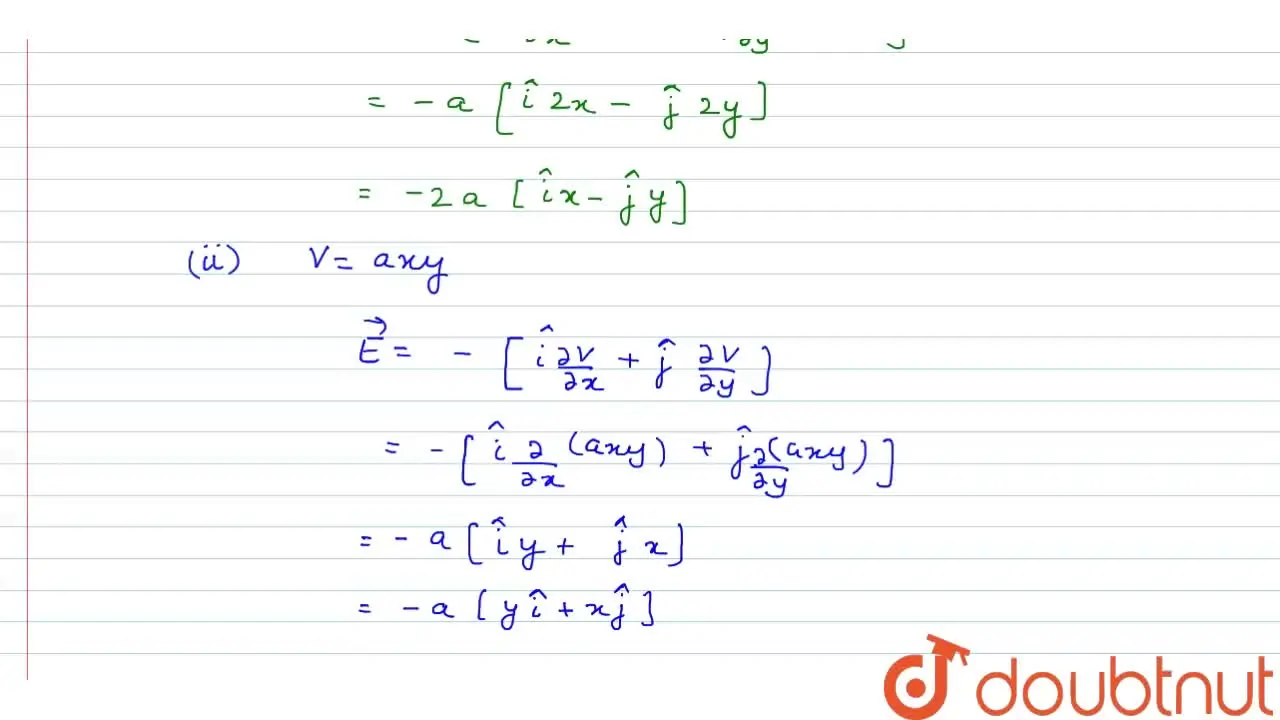Determine the electric field strength vector if the potential of this field depends upon x - and y - coordinates as :
(i) V=a(x2−y2)
(ii) V=axy.
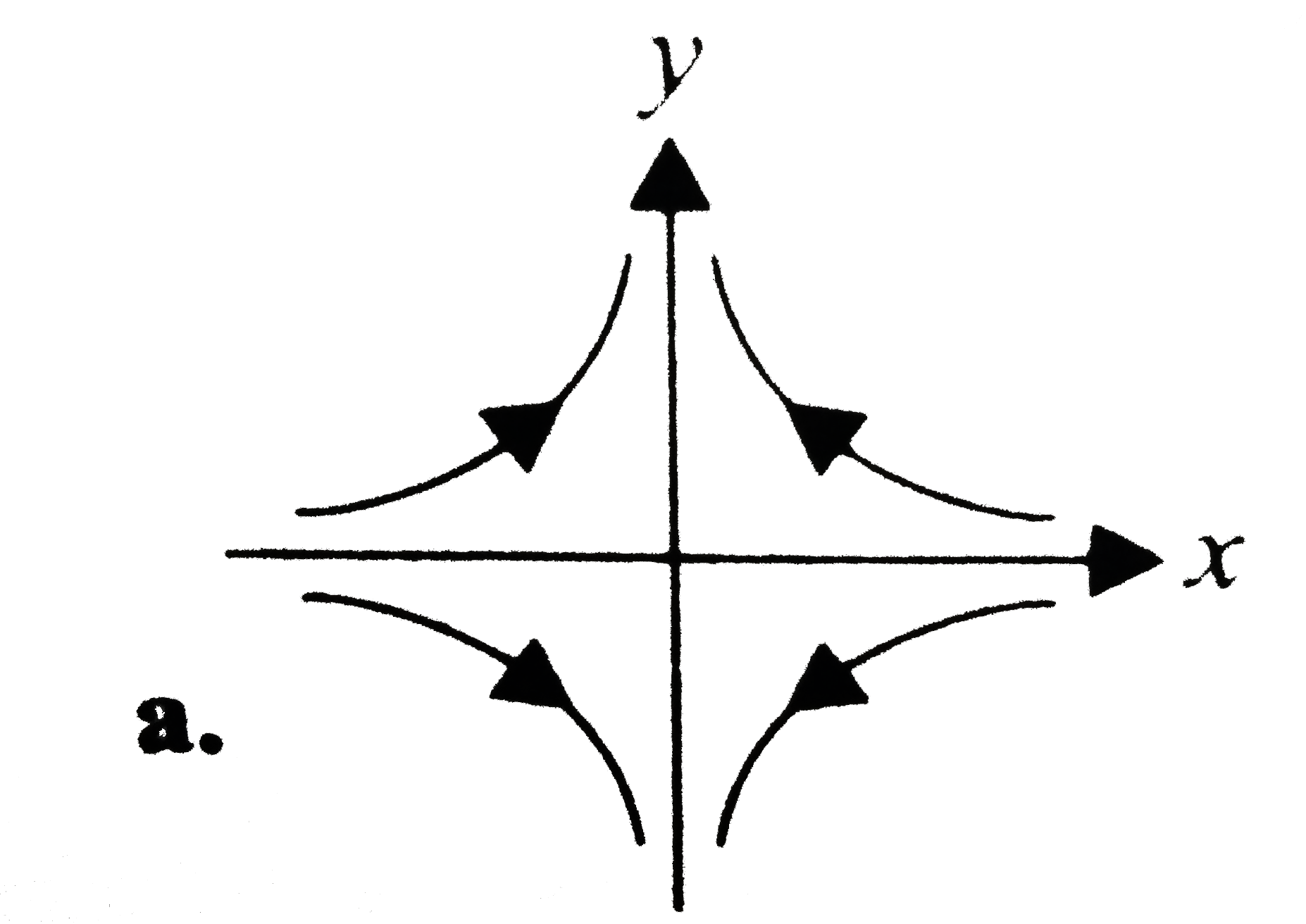
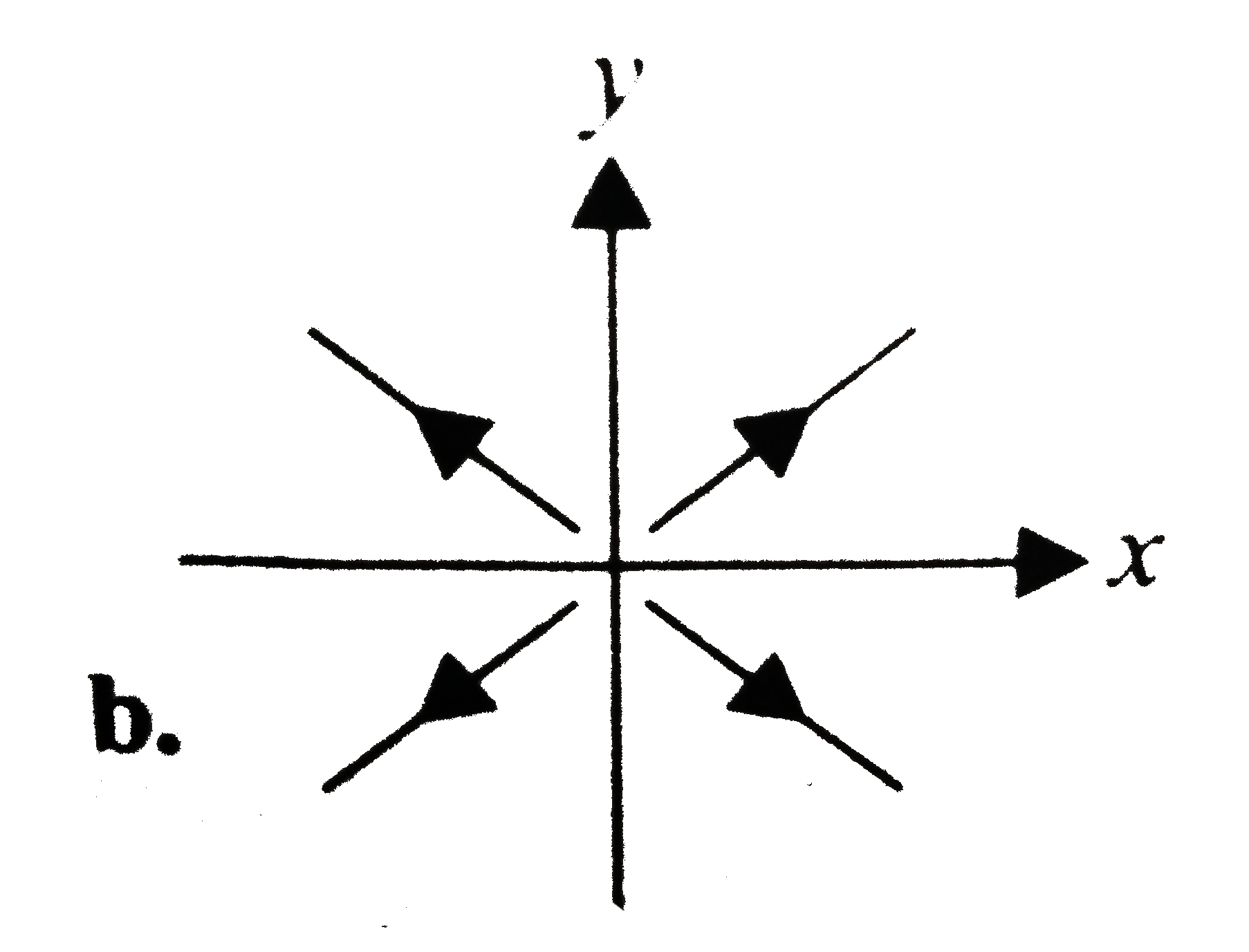
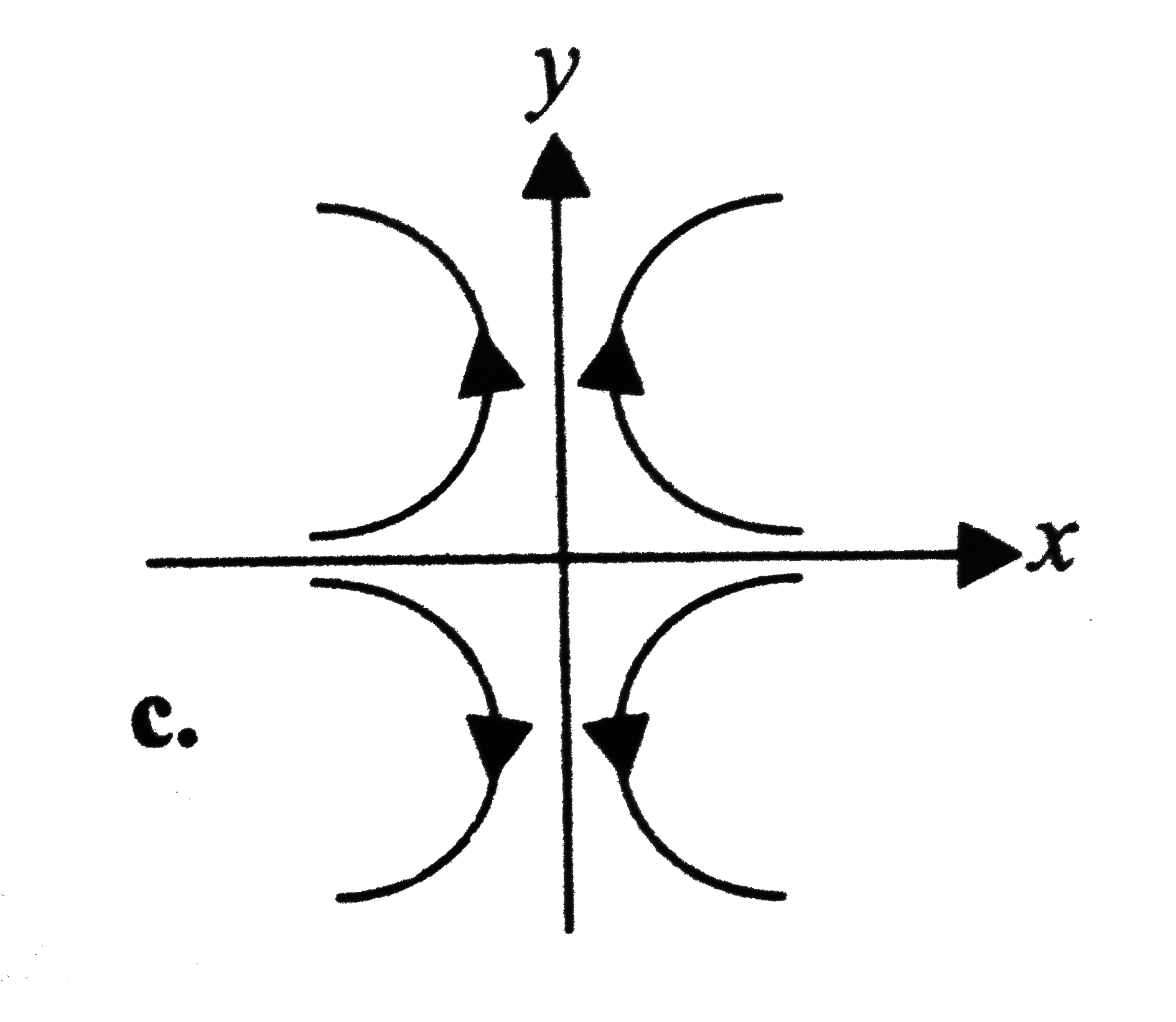
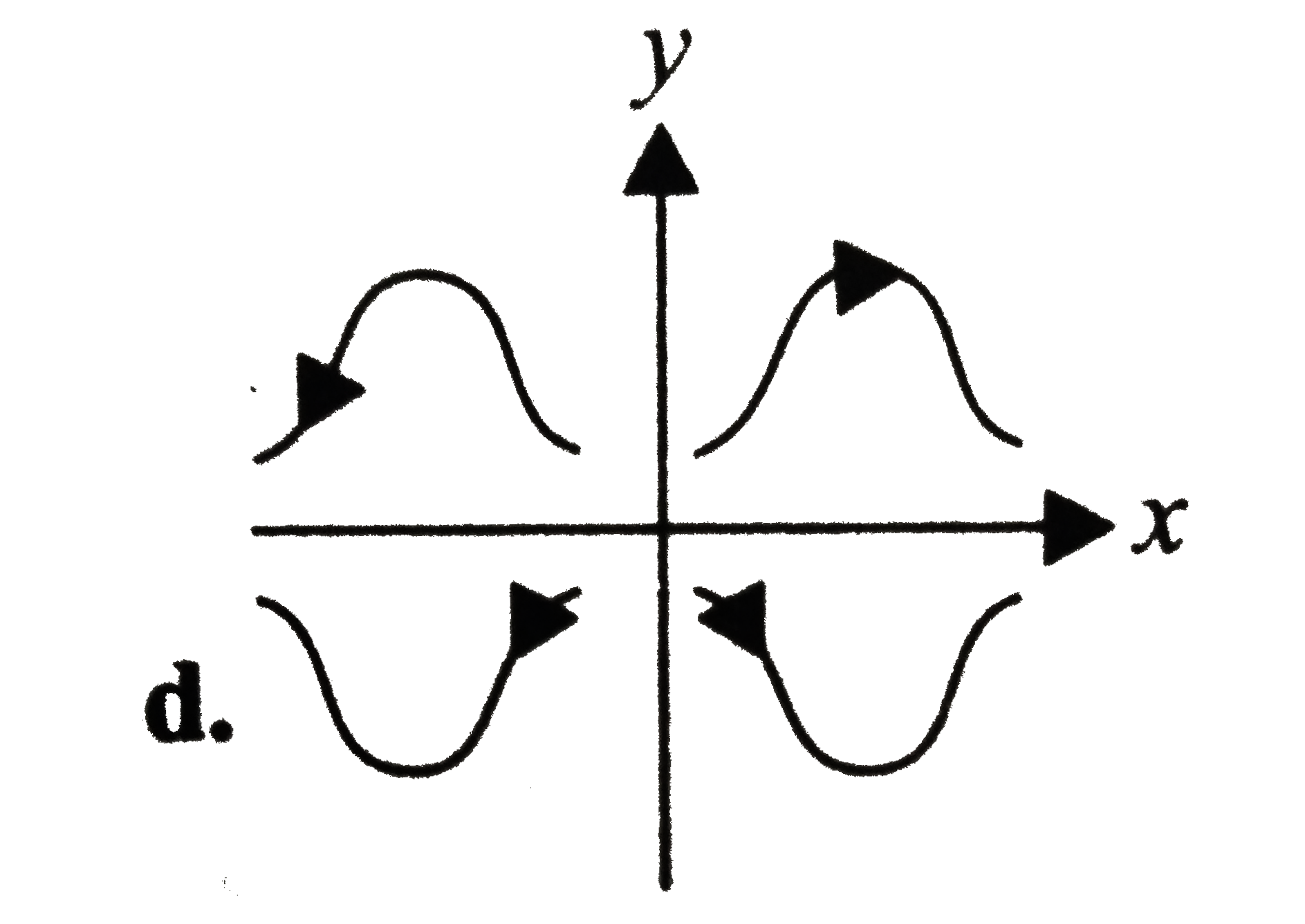
The correct Answer is:a
V=x2−y2

Ex=−dVdx=−2x
Ey=2y
Related Playlists
- BOOK - CENGAGE PHYSICS ENGLISHCHAPTER - ELECTRIC POTENTIALEXERCISE - Multiple Correct10videos
ELECTRIC POTENTIAL
- BOOK - CENGAGE PHYSICS ENGLISHCHAPTER - ELECTRIC POTENTIALEXERCISE - Comprehension31videos
ELECTRIC POTENTIAL
- BOOK - CENGAGE PHYSICS ENGLISHCHAPTER - ELECTRIC POTENTIALEXERCISE - Subjective28videos
ELECTRIC POTENTIAL
- BOOK - CENGAGE PHYSICS ENGLISHCHAPTER - ELECTRIC FLUX AND GAUSS LAWEXERCISE - MCQ s38videos
ELECTRIC FLUX AND GAUSS LAW
- BOOK - CENGAGE PHYSICS ENGLISHCHAPTER - ELECTRICAL MEASURING INSTRUMENTSEXERCISE - M.C.Q2videos
ELECTRICAL MEASURING INSTRUMENTS
Similar Questions
Determine the electric field strength vector if the potential of this field depends on X, coordinates as V = 10 axy
View SolutionDetermine the electric field strength vector if the potential of this field depends on x, coordinates as
(a) V=a(x2—y2) (b) V=axy
where, a is a constant.View SolutionGravitational potential in x−y plan varies with x and y
coordinates as
V=x2y+2xy
Find gravitational field strength E.View SolutionThe electric field strength depends only on the x, y, and z coordinates according to the law E=a(xˆi+yˆj+zˆk)(x2+y2+z2)3/2, where a=280Nm2C−1 is a constant. If the potential difference between (3,2,6) and (0,3,4) is x2. What is the value of x.
View SolutionWhich of these is/are representing electrostatic field? (x and y are space coordinates)
View SolutionThe direction of the field B at P is
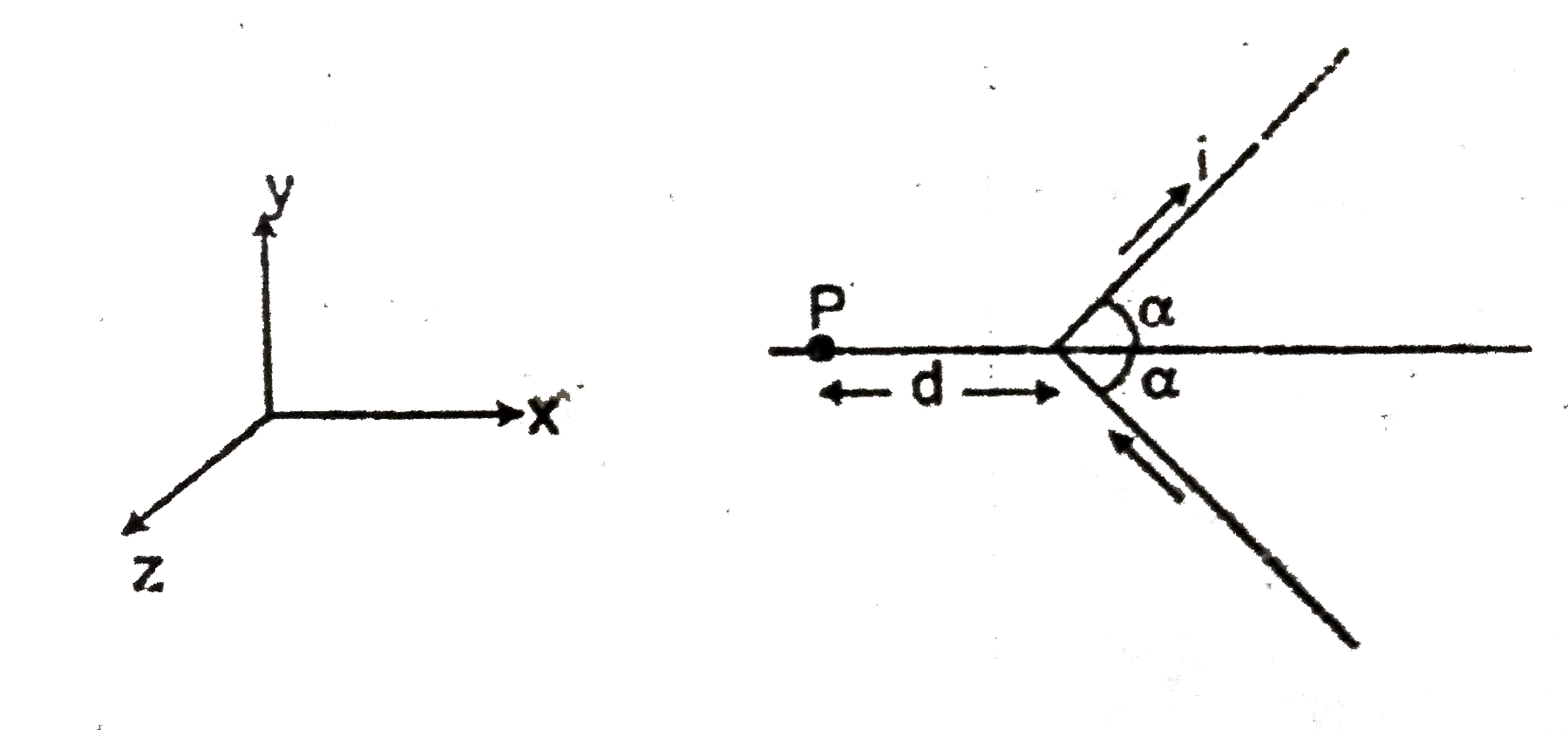
the V shaped wire is in x-y planeView SolutionLet V0 be the potential at the origin in an electric field →E=4ˆi+5ˆj. The potential at the point (x,y) is
View SolutionDetermine graphically the coordinates of the vertices of a triangle, the equations of whose sides are: (i) y=x, y=2x and y+x=6 (ii) y=x, 3y=x and x+y=8
View SolutionThe electric field strenth vector is given by E=2.5xˆI+1.5yˆ.The potential at point (2,2,1) is (considering potential at origin to be zero)
View SolutionThe electrostatic potential V at any point (x, y, z) in space is given by V=4x2
View Solution

